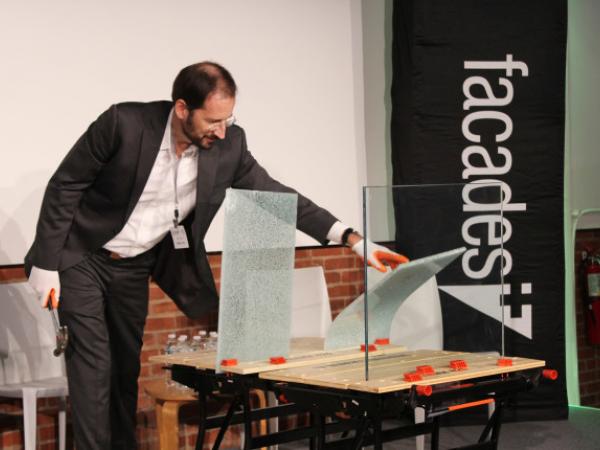
Date: 12 May 2016
With YKK AP as 2016 conference chair, a record-breaking attendance of over 500 design professionals, 60 other sponsoring organizations, and additional workshops held at New York Law School on April 22, Facades+ explored the potentials of new materials, fabrication processes, and design strategies on scales from single windows to urban districts.Facades+, a mobile event offered several times a year since 2012 (hitting seven U.S. cities during 2016), offers regular updates on high-performance enclosures.
Contemporary technologies and materials, participants noted, allow increasing control of light and heat as well as expanding design options; at the same time, specialists argued for tempering expectations about parametric design and renewable power generation.

Keynote speaker Odile Decq, Studio Odile Decq (AN)
“Glass is really the material of the 21st century,” asserted morning keynote speaker and 2016 Jane Drew Prize winner Odile Decq, discussing innovative combinations of laminated glass with external sunscreens, embedded textiles, and other elements. Decq led the audience through a series of projects employing transparency, color, and stylistic contrasts, including the Banque Popular de l’Ouest in Rennes (with Peter Rice), the Museum of Contemporary Art in Rome, the Garnier Opera House restaurant in Paris, and the Fangshan Tangshan National Geopark Museum in Nanjing. Architecture can look to the auto industry, she added, for advances in safety, self-cleaning, and energy management that are adaptable to buildings.

(AN)
In contrast, rising energy concerns mean that “glass is no longer king,” said Buro Happold’s Jonathan Sakula; it is part of a broader material repertoire. Stringent codes often make triple glazing difficult to avoid, he noted, despite disadvantages in weight, acoustics, and cost. Responding to an audience question about curtain walls as media for power generation, NY conference co-chair KPF’s Shawn Duffy suggested that building-integrated photovoltaics are not yet realizing their potential.
Among featured buildings with concrete or masonry façades, standouts included DDG’s 12 Warren Street condo clad in Catskill bluestone, discussed by Peter Guthrie, and S9 Architects’ 205 Water Street, a gritty neo-brutalist grid of board-formed concrete and exposed steel where, in engineer Stephen DeSimone’s pithy phrase, “the structure is the façade.”

Bill Pedersen, Founding Design Partner of KPF (AN)
Technical briefings covered distinctions between fire-resistive and fire-protective glazing (Tim Nass of Saftifirst), woven-metal shading (Tom Powley of GKD-USA), and a dramatic breakage test by Kuraray’s Mark Jacobson comparing polyvinyl butyral and SentryGlas ionoplast interlayers (hammer blows to the edge shattered both panes, but only the latter resisted crumpling). YKK’s Bang Ting Tan described a top-down curtain-wall retrofitting method that outperforms conventional procedures in safety, weathertightness, and work-cycle efficiency.
[interstitial]

Vidaris’s Peter Arbor helps at a Kuraray demo. (AN)
Tension between design ideals and constraints of economics, zoning, context, and client input was a recurrent theme. In a panel on Related’s 17-million-square-foot Hudson Yards, William Pedersen commented that “the ability to achieve structural purity in a speculative office building is almost impossible” because dimensional requirements guide formal gestures.
Yet the Yards hardly shortchange aesthetics: KPF’s chamfered-cornered north and south towers will “perform a choreographed dance” near the High Line and the ETFE cushions of the Culture Shed by Diller Scofidio + Renfro / Rockwell Group, and Tower D by the latter team plus Ismael Leyva Architects will morph from a rectangular base to a quatrefoil as it rises.
Neil Thelen (Thelen Design Group) hailed the subtleties in this tower’s residential entrance of CNC-milled stone and the curtain-wall panels’ complex geometries. Another high point was Thomas Phifer’s afternoon keynote presenting designs from the Salt Lake City U.S. courthouse to the Corning Museum of Glass, augmented by a Q&A with AN‘s Matt Shaw considering local variations in light quality. “The light is the one thing that always surprises you when you build,” noted Phifer.

Methods+Materials Gallery (AN)
Enclos’s Mic Patterson provided a sobering note in the concluding panel on digital fabrication. Despite impressive recent projects—Hoeweler Yoon’s Sean Collier Memorial of milled granite, James Carpenter’s Fulton Center Sky Reflector-Net, and Kreysler & Associates/Enclos’s fiber-reinforced plastic rainscreens for Snøhetta’s San Francisco Museum of Modern Art—the gap between “those buzzwords we have in our industry” and seamy real-world transitions between programs or contractors can be alarming. “The obvious trend is accelerating complexity of the building skin….
How much complexity is sustainable?” Patterson asked. “All you have to do is visit a university architecture program: kids go nuts with Rhino, but nobody’s talking craftsmanship.” The precise woodwork in Kahn’s Escherick House, he added, “screams, ‘Digitize this, sucker!’”—a challenge for everyone to take home.
 600450
600450

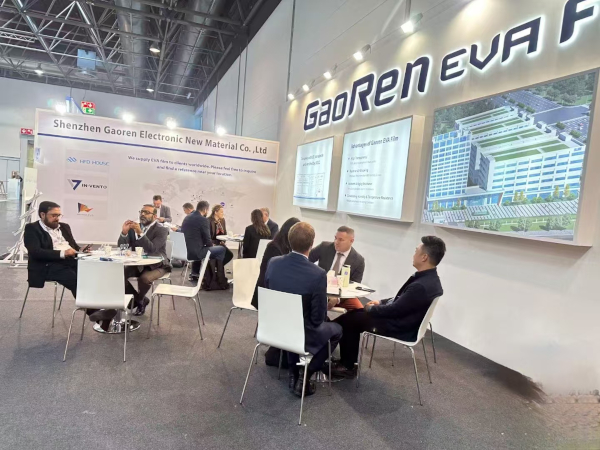


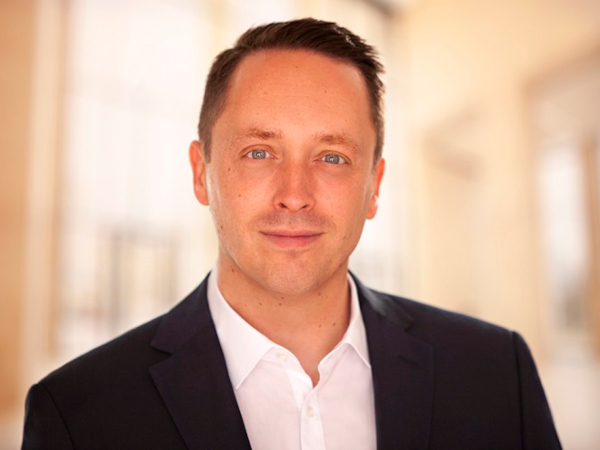
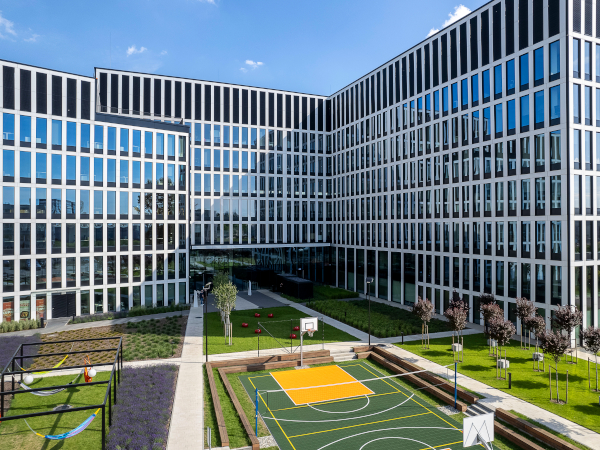



















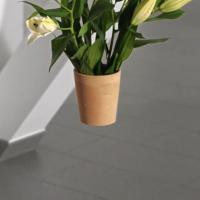

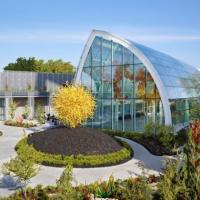
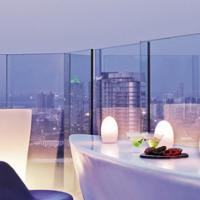

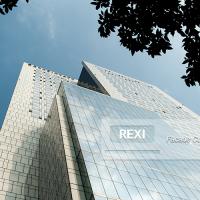
Add new comment